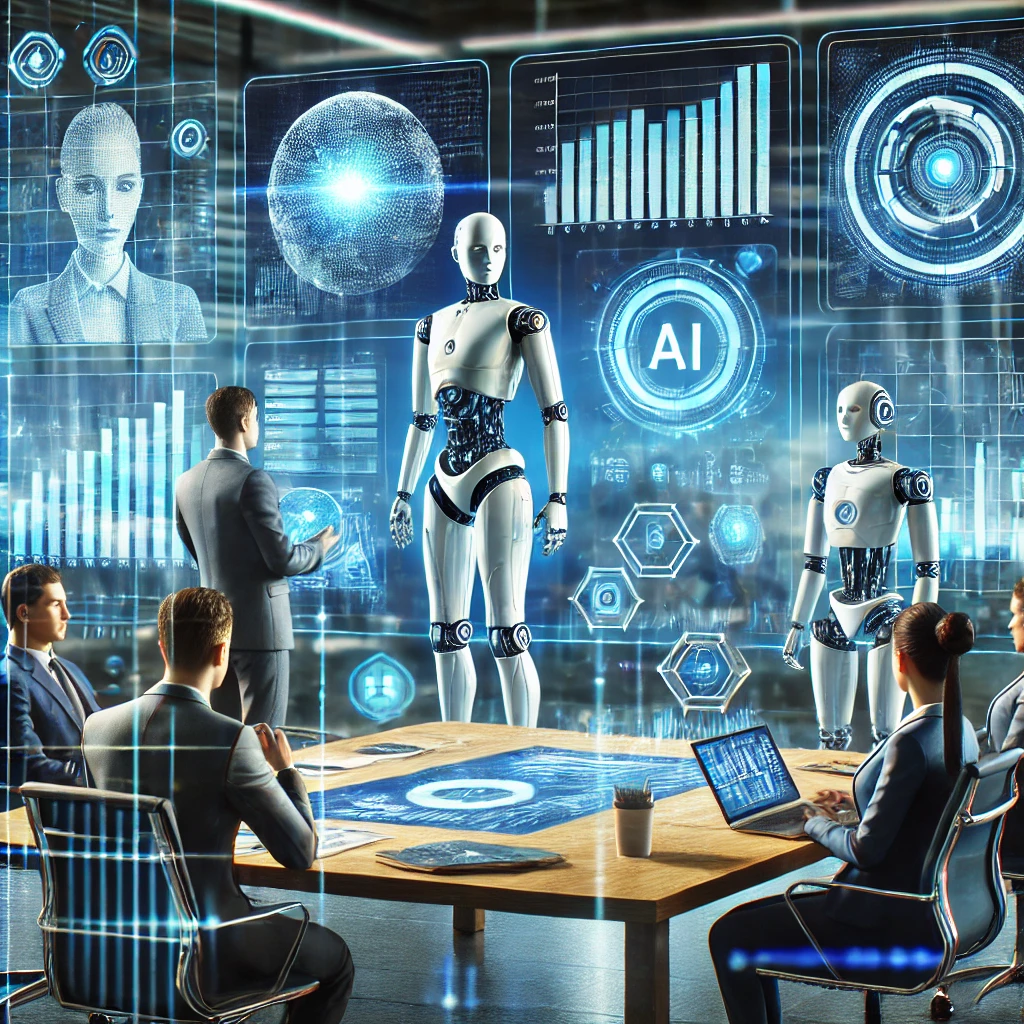SLO 1 - Critical Thinking - Future Jobs
Published at Sep 23, 2024
The integration of AI and robotics is poised to significantly reshape the employment landscape across various fields. In sectors like management and programming, automation may reduce the demand for lower-tier roles while augmenting the productivity and capabilities of higher-level professionals. For artists, rather than replacing jobs, AI will likely serve as a tool to enhance creativity and efficiency, enabling more refined and timely execution of concepts. Understanding the nuanced impact of AI across different professions is crucial to navigating the future of work.
AI will change managerial roles by automating most of the tasks done currently by middle management. Allowing higher level managers to get feedback directly from field managers and speeding up managerial decision making. AI will be able to more effectively be able to carry out the administrative work of managers, while leaving the decision making to the managers as they need to have a deep understanding of the current state of the organization and the economy as a whole and that would require more data than AI can process. In the future, AI should be able to process more data, but it will never be up to the level of what is required for managerial roles. As stated by Kolbjørnsrud, Vegard, et al., “One company that is trying to address these opportunities is Kensho Technologies, a provider of next-generation investment analytics. Its system allows investment managers to ask investment-related questions in plain English, such as, “What sectors and industries perform best three months before and after a rate hike?” and get answers within minutes”. AI can help provide the information for managers to use in their decision making, but they would also need to work with their outside data points that AI just can not process as efficiently as humans.
Programmers would be able to use AI as a junior developer; writing boilerplate code, reviewing code, as well as suggesting potential solutions to the problems. It will cause a decrease of jobs available as the jobs currently performed by novice developers could be automated and replaced. In a research paper by Ma, Qianou, et al. they found that a human programmer with AI completed tasks 55.8% faster than just a solo human whereas human pairs vs a single human was only 29% faster. AI will not be replacing humans within the next few decades, although AI will help speed up development and decrease the size of programming teams as human teams are not as efficient as humans with AI.

Artists can not be replaced as art is an innately human thing and requires humans to create it. Art is a representation of our culture, and, while AI can be a tool used by artists, AI can not replace artists. Art requires a deep understanding of the social, economic, and political climate of the society as well as the individual artist’s history, background, life experiences, and family. “Art can be a response to a political context, to an artist’s background, to the world we inhabit. This cannot be replicated using machine learning, which is just a data-driven tool. You cannot – for now – transfer life experience into data […] They aren’t going to create new artistic movements on their own – those are PR stories” (qtd in “Art for our sake”).
AI will be used to replace some jobs, like those done by lower leveled positions, but they will not fully replace most skilled laborers. Managers can leverage AI to focus more on judgment tasks rather than administrative. Programmers are more efficient using AI as a partner than other humans, and it increases development speed. Artists also can not be replaced as art is a visual representation of human culture. Within the next 30 years unemployment will increase slightly as AI begins to properly be implemented into jobs, but over time unemployment would likely even out to how it is today. Overall, those jobs that people will be working 30 years from now would be more skilled jobs and require more training, but overall levels of employment would stay roughly the same.
Works Cited
“Art for Our Sake: Artists Cannot Be Replaced by Machines – Study.” University of Oxford, University of Oxford, 3 Mar. 2022, www.ox.ac.uk/news/2022-03-03-art-our-sake-artists-cannot-be-replaced-machines-study.
Kolbjørnsrud, Vegard, et al. “How Artificial Intelligence Will Redefine Management.” Harvard Business Review, Harvard Business Publishing, 21 Sept. 2017, hbr.org/2016/11/how-artificial-intelligence-will-redefine-management.
Ma, Qianou, et al. “Is AI the Better Programming Partner? Human-Human Pair Programming vs. Human-AI pAIr Programming.” ArXiv.Org, Ithaca, 2023. ProQuest Central Essentials, Accessed 23 Sept. 2024.